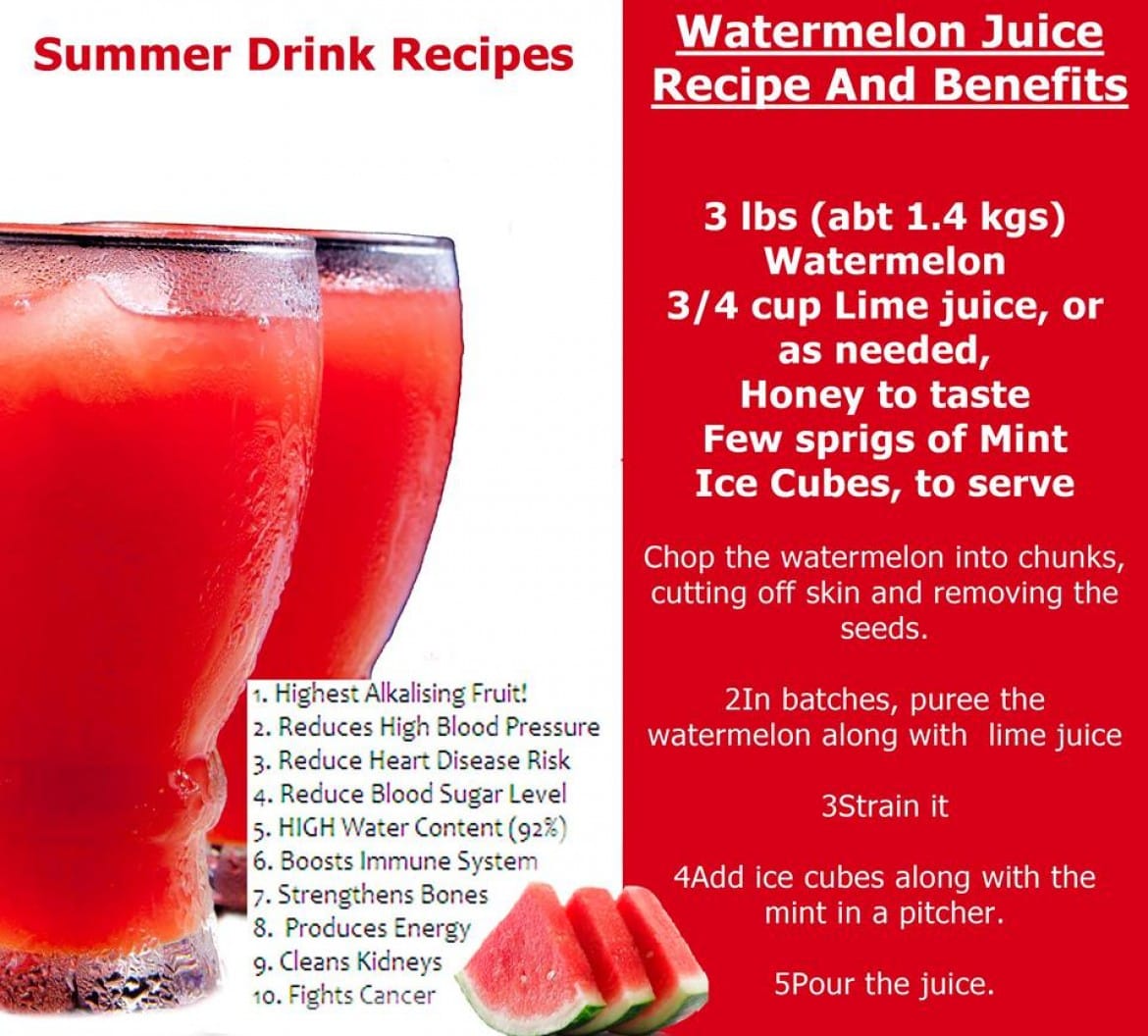This sweet summertime fruit is bursting with flavour and nutrition. Here’s what’s inside:
What’s inside Watermelon
Vitamin A: This important vitamin helps support eye health and is an antioxidant that can help the body fight off the damaging effects of free radicals.
Vitamin C: Eating watermelon can also help bolster your immune system due to its vitamin C content. Vitamin C can also help heal wounds, prevent cell damage and promote healthy teeth and gums.
Vitamin B6: Bite into watermelon to get some vitamin B. This vitamin is required for the synthesis of the neurotransmitters serotonin and norepinephrine, substances your body makes to help stabilize your mood.
Lycopene: While most people think of tomatoes as the best source of lycopene, watermelon has the highest concentration of this nutrient out of any fruit or vegetable. Studies have found that lycopene may help reduce the risk of cardiovascular disease and macular degeneration. Studies have also found that lycopene can help protect your skin from sun damage.
Potassium: If you don’t feel like going bananas today, try some watermelon to get your potassium. Potassium helps muscle and nerve function and the body maintain the proper balance of electrolytes and acids. It also helps lower the risk of high blood pressure.
Amino Acids: Watermelon contains the amino acids citrulline and arginine. These amino acids help promote healthy arteries, blood flow and cardiovascular function.
Water: Watermelons are about 92 percent water. Eating watermelon can help your body stay hydrated and be a way to refresh yourself on a hot summer day.






